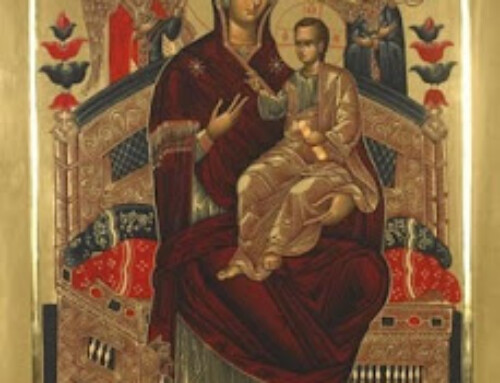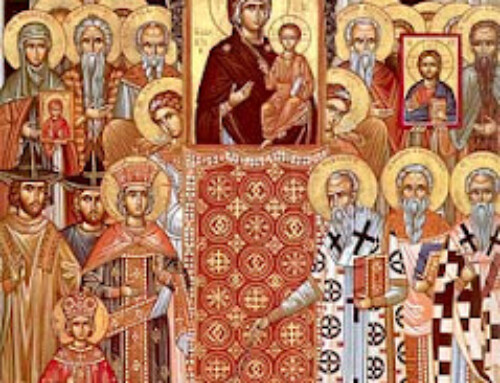Word Magazine May 1959 Page 9
OBLIGATION OF CHURCH MEMBERS
By Father Alexander Curry
From time to time the question of church membership arises in our congregation, and I believe it is a problem that must be solved in all churches.
The question of who should pay dues, the services they are entitled to, should non-members receive the services and use of the church facilities, are an example of the questions asked.
In view of the confusion and conflict these things cause in our minds, I am going to try to clarify several things which I think will make clear to you your duty and obligation to God, and to His church.
First I would like to explain the meaning of the word church. The word is derived from the Greek word ekklesia, which means “gathering.” A group of people gathered together to worship and glorify God makes up the church.
Our Saviour tells us “where two or three are gathered together in my name there I will be also,” so it is quite clear what the Bible means by church: it is the people worshiping God that constitutes it. The church referred to in the Bible did at no time pertain to the building. It is evident that we of this day and age confuse the meaning of church with that of a church building.
To be a member of the true Christian church, you must be a professed follower of our Saviour Jesus Christ. You may have your dues paid but it does not make you a true follower of Christ: the making of a true Christian starts first in your heart. Salvation cannot be forced on anyone: you must desire and seek redemption, and a true member knows what God requires of him.
One tenth of all we have belongs to God. You know God requires this of members of His church; our Holy Bible tells us so. This is not a law of man.
In Genesis the 28 C, we read of Jacob’s vow; he vowed “If God will be with me, and keep me in this way I go, and will give me bread to eat and raiment to put on, this stone which I have set for a pillar, shall be God’s house, and all that thou shall give me, I shall surely give one tenth unto Thee.
Again in the third chapter of Malachi, we find this prophet teaching the people of Israel saying “will a man rob God, yet ye have robbed me, but ye say wherein have we robbed thee, in tithes and offerings, Ye are cursed with a curse.”
And still again in the 16 C, 1st Corinthians after the crucifixion and resurrection of Christ, St. Paul writes upon the first day of the week, let everyone of you lay by him in store, as God has prospered him,” you will notice you are to give according to what you get as God has prospered you. God does not wish to put hardships on anyone, but He does require of all his church members a certain amount for the church. Our Holy Bible is more than a piece of good literature; it is a way of life. God’s way of life for us. Giving to the church is not a rule of the Archbishop, or the priest, nor the church officers, it is God’s request.
You are not being generous when you give to God what He requires of you. You only are generous when you give above that amount, and they who do not give are cheating God of His rightful share. Giving to the church is the method of girding the church; the government is supported by taxing its citizens; industry is maintained by the return from the sale of its products, but the church has no way to equip itself for its work except by the gifts of its members.
In the 4th chapter of Acts we are told that the early church was financed by the humble people, for as many as were possessed of land and houses sold them and brought the prices of the things that were sold and laid them at the apostles’ feet.
Their deep poverty abounded unto the riches of their liberality. Here was the spirit of the cross practically applied. Giving is the mother of many graces, which proves the statement, ‘‘It is more blessed to give than to receive.”
Giving is an antidote for selfishness, it creates an atmosphere of joy and delight in the church. There is a wholesome sense of satisfaction when one realizes that he has given something to God.
We believe we have a Saviour who redeems the whole of Life, who dominates the now as well as the hereafter, who is the giver of life, to whom belongs all we have. We repeat it in our confession of faith, but oftimes it is forgotten in our business practice. It is found in our prayer books, but not in our checkbooks.
There is no effective way by which the church can present the claim of our Lord, if the people who make up the church neglect to fulfill their obligations.
You will notice in the life of Christ on this earth, he fulfilled all the laws of the Hebrew Faith, thus setting before us an example of obeying laws. Following this example set before us, I think we should have laws in the church so constituted as to help us fulfill our duties as true Orthodox Christians.
Christ loved the church that he gave himself for it. The central fact of our church is the Cross, the giving of life that other life may be. It is therefore our duty to take part of what we receive, and give to God, so that we may humbly express our love to the living church. Give unto the Lord as he has prospered you.




